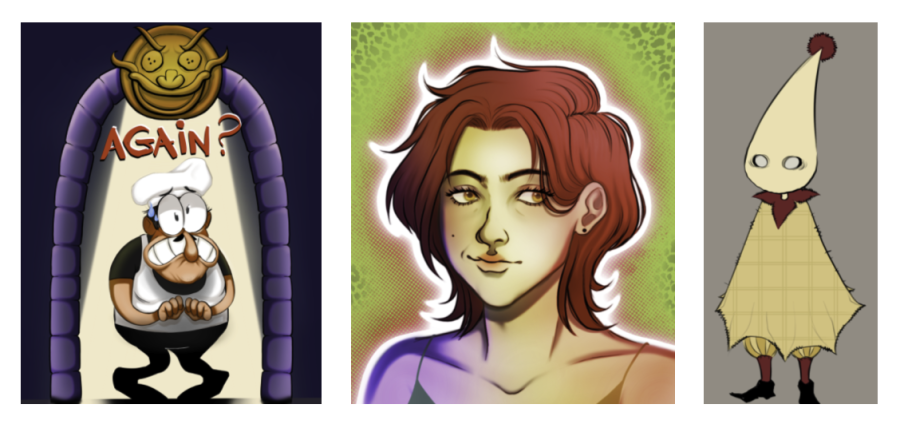If a tree falls in a forest and nobody is around to hear it, does it make a sound?
You’d initially think the answer is yes, but what if I asked you to search for a deeper meaning? What if the tree represented a person? Does it matter whether it makes a sound or not if no one’s there to hear it?
That’s the premise of the new Broadway musical Dear Evan Hansen. With music and lyrics by Benj Pasek and Justin Paul, it tells the story of Evan Hansen, a high school senior with social anxiety disorder who gets himself involved in a tragedy that he has no right to be part of. When his classmate, Connor Murphy, kills himself, Evan lies to Connor’s family about having been his friend. His lie leads him to develop a close relationship with the Murphys (especially their daughter, Zoe, who he has a crush on), achieve popularity, and feel loved and self-confident for the first time in his life… until everything comes crashing down before him, forcing him to fix the mess he’s made.

The songs are remarkable. The orchestra consists of guitar, strings, drums, and piano, giving the soundtrack a contemporary feel. The heartwarming ballad “If I Could Tell Her” seems like it is just that, but it’s actually pretty manipulative–Evan essentially uses Connor’s death to admit his feelings for Zoe. He tells her all the things he loves about her, but claims that Connor was the one who said them. Still, it’s a sweet song, and it gives us insight on both who Zoe is as a person and just how infatuated Evan is with her. The Act 1 finale “You Will Be Found” is a soaring anthem for anyone who has ever felt alone or unloved. It tells us that there is always a way to find light if you are stuck in darkness. All you need to do is ask for help, and someone will hear you and reach out. Then there’s “Good for You,” in which Evan finally gets admonished for everything that has happened, primarily by his mother, Heidi. Heidi lashes out at Evan for rejecting her to spend time with the Murphys. As a single mother, she has worked so hard to support herself and her son, and she deserves more than for him to make her feel like she’s not good enough. Meanwhile, Evan starts to realize that his lie has spiraled out of control, and he wonders frantically how he can fix the situation, fearing there is no solution. Other great songs include “For Forever,” in which Evan tells a false account of a day he and Connor spent together; “Requiem,” in which we see each of the Murphys individually react to Connor’s death; “Only Us,” a love song between Evan and Zoe; and “Words Fail,” in which Evan finally confesses the truth.
But the true standout of the album is “Waving Through a Window,” which takes place at the beginning of the show. In it, Evan reflects on how he’s spent his life watching from the background, always observing and never experiencing. He never speaks up lest he get noticed and judged by others. But now, he starts to realize that because he never gets noticed, very few people know he even exists. Evan broke his arm by falling out of a tree before the events of the show (hence its logo of an arm in a cast), but what we don’t know yet is that the fall was actually a suicide attempt. The fact that no one want to sign his cast only worsens his loneliness. “When you’re falling in a forest and there’s nobody around, do you ever really crash or even make a sound?” he sings, and repeats, until he escalates to, “Did I even make a sound? It’s like I never made a sound, will I ever make a sound?” To question whether you matter to people is one of the most depressing things one can experience, and this is a question that has been circling around in Evan’s mind for months at least. It’s heartbreaking and honest, but also hopeful. The musical truly understands what it’s like inside the minds of people who feel lost and unseen, and so it reaches out to them and reminds them that they are not alone and that they matter.
The amazing thing about the show’s soundtrack is how much you can empathize with the characters. What Evan does is definitely wrong, but he isn’t portrayed as a completely bad person; rather, he’s shown as a teen who longs for understanding and connection and who finds himself in a situation he feels he can’t get out of. He still isn’t excused from what he’s done, but one can understand why he does it: he doesn’t want Connor’s family to know how isolated their son was, and he’s never gotten this kind of attention and affection from anyone before. Ben Platt, who plays Evan, perfectly captures the character’s inner turmoil and yearning for being heard. His performance feels authentic; oftentimes it seems like he’s not playing Evan, but he’s being Evan. And Rachel Bay Jones, who plays his mother, has incredible range. She displays so much strength in her performance that it’s a pity she’s not in more songs. The entire cast is superbly talented; though it only consists of eight people, everyone fits their role perfectly and together they make a great ensemble.
My one complaint about the soundtrack is that there’s a lot of information that it leaves out. If someone listens to the musical but can’t afford Broadway tickets, there’s a lot that they will miss out on. Nowhere in the album does it mention that Evan tried to kill himself, and it leaves out several other important plot points as well. While the soundtrack is 57 minutes in total, the full show lasts two and a half hours, so we miss out on more than half of the show’s content, which is unfortunate. But the content that we do get to listen to via the album is quite memorable and there’s no doubt it’ll get stuck in your head.
Dear Evan Hansen is a perfect starting point for people who are interested in listening to Broadway soundtracks but don’t know where to start. It doesn’t have as many songs as most other musicals, the music is catchy, and it’s incredibly relatable. If you’ve ever felt like an outsider longing to fit in, this is a great musical for you.
Rating: 9/10













